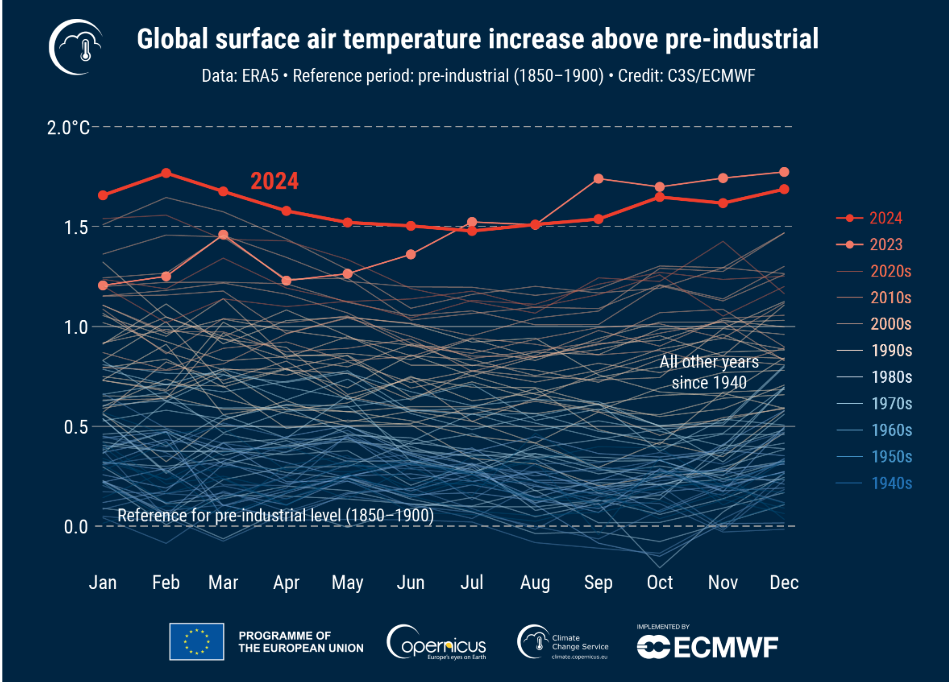

That is according to the latest update from the EU’s Copernicus Climate Change Service (C3S), which confirmed that the average surface air temperature in 2024 was 1.6°C above estimated levels for 1850-1900.
While this does not mean we have breached the limit set by the Paris Agreement – which refers to averages over at least 20 years – it underscores that the world is hotter than modern humans have ever experienced.
Each of the 10 warmest years on record were between 2015 and 2024, with last year’s global average temperature of 15.10°C a significant 0.72°C above the 1991-2020 average, and 0.12°C above the previous record set it 2023.
"All of the internationally produced global temperature datasets show that 2024 was the hottest year since records began in 1850,” said C3S director Carlo Buontempo.
“Humanity is in charge of its own destiny but how we respond to the climate challenge should be based on evidence. The future is in our hands – swift and decisive action can still alter the trajectory of our future climate.”
The monthly global average temperature exceeded 1.5°C above pre-industrial levels for 11 months of the year in 2024, which is shown below:

A new daily record high was reached on 22 July 2024, at 17.16°C, with last year the warmest for all continental regions except Antarctica and Australasia.
Each month from January to June 2024 was warmer than the corresponding month in any previous year on record.
The findings also show that the annual average sea surface temperature over the extra-polar ocean reached a record high of 20.87°C in 2024, 0.51°C above the 1991–2020 average.
Furthermore, the total amount of water vapour in the atmosphere reached a record value about 5% above the 1991–2020 average.
This was more than 1% higher than in 2016 and 2023, the years with the previous highest and second highest values, respectively.
IEMA deputy CEO Martin Baxter commented: "We’re seeing the effects of climate change in all parts of the world - floods, droughts, wildfires - climate risks are growing faster than mitigation and adaptation action.
"We urgently need to focus on rapid reductions in GHG emissions and enhance the climate resilience of communities, infrastructure, businesses, and supply chains."
Image credit: Shutterstock